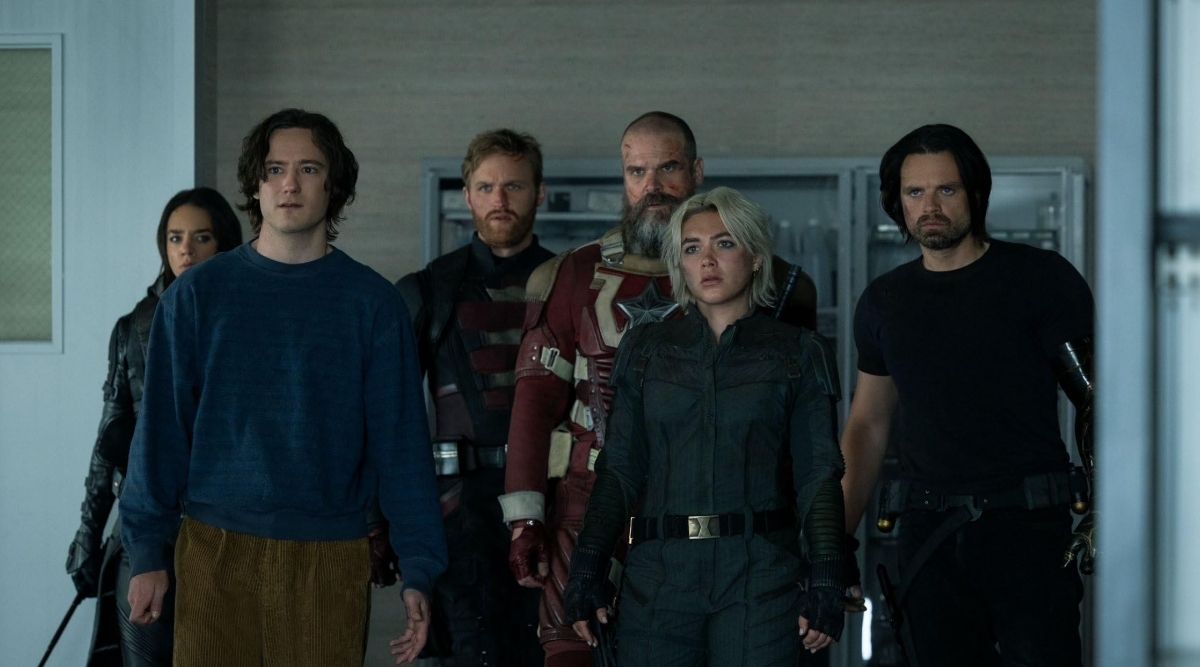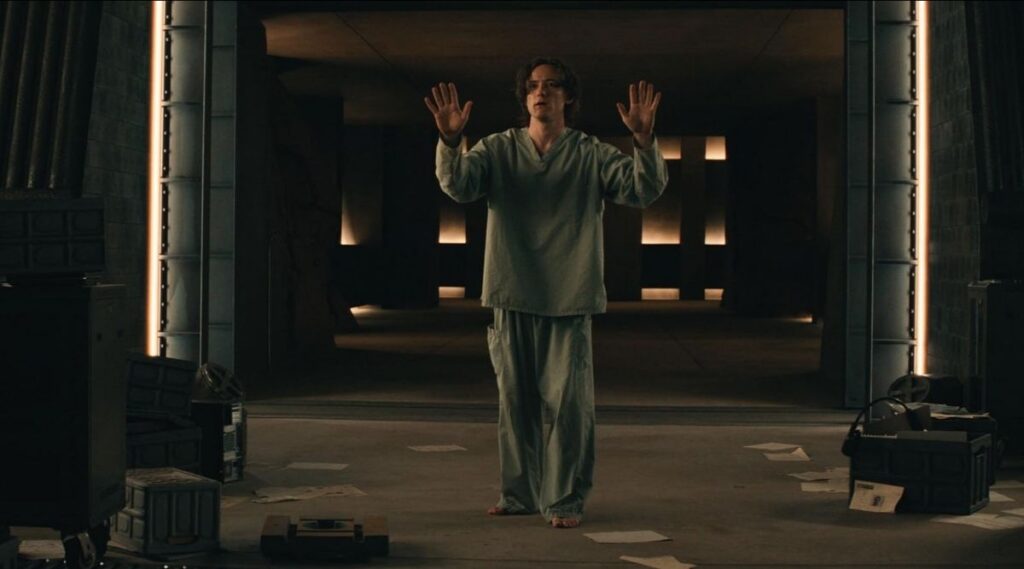This article contains spoilers for Thunderbolts*
Marvel Studios’ Thunderbolts* is one of the best visual depictions of depression ever. When I describe my depression, I explain that it feels hot and red. It’s not like I can quantify this in any meaningful way, or as if describing it out loud can put anybody else inside that state of being. So when Bob (Lewis Pullman) describes his depression to Yelena (Florence Pugh) as a void, I didn’t really get it at first. That’s not how I express my depression, so it felt unrelatable, if not a bit alien. But then, Thunderbolts* showed what Bob was describing in vivid detail, and my entire understanding of his character and his depression changed, because, unlike in real life, I was able to be part of what he was trying to describe.
Thunderbolts* isn’t just a typical story about a group of misfits and outcasts who find purpose and meaning together. Those stories happen all the time. This movie is immediately and consistently dour and dedicated to having a forthright conversation about depression and its non-pharmaceutical antidotes. It opens with Yelena giving a monologue about how depressed and lonely she feels, like there is no joy or purpose in life any longer, before she jumps off the top of a skyscraper. Obviously, she parachutes to safety, but immediately, the movie makes it clear that it’s not aiming for simplicity with quick panic attacks or brief conversations with therapists.
Yelena is depressed. Alexei/Red Guardian (David Harbour) is depressed and Walker/U.S. Agent (Wyatt Russel) is depressed. Bucky (Sebastian Stan) too knows what that dark place is like first-hand. It manifests differently for everyone, but they’re all soaked deeply in shame and loneliness. But Thunderbolts* isn’t content to just let everyone overcome their depression through the power of plot alone. It throws metaphor out the window and requires all of its characters to physically encounter their dark corners and fight together to overcome a physical and deadly manifestation of Bob’s depression.
When Bob tells Yelena that depression feels like a void, he means it literally. When he falls into deep depressive spells, he falls into a sort of mind palace where he lives his greatest shames and worst moments over and over again. When he touches people, they briefly experience this for themselves, too. He has the incredible power to share exactly what his depression feels like with others, and it’s what saves them.
Thunderbolts* is a reminder that the cure for loneliness is not to be alone.

Seeing Bob’s void is powerful unto itself. It visualizes his description of his depression in ways that only a superhero movie could. His void is depicted as a literal all-consuming darkness, and he and his friends have to literally fight that darkness together to overcome it. But it’s even more incredible that instead of his power further ostracizing him from the rest of the world, it becomes what binds the Thunderbolts together as a group. Everyone else gets to see what Bob’s void looks and feels like for themselves. They get to understand his experience, together, while connecting it to their own.
At its simplest, the ultimate weapon in Thunderbolts* is friendship. The simple truth is, the best way to combat loneliness is not to be alone. The movie expresses this with ease and levity while also taking it deadly seriously. And despite each individual’s past, in the end, they pass no judgment on each other for who they were at their worst.
It’s okay that Alexei never calls Yelena because you know what? Yelena never calls Alexei either. And so what if Bob nearly consumed all of New York City in darkness? Bob can’t help the way his mental illness was manipulated and taken advantage of. What matters is that they all come to realize that if they stick together, the next time the darkness comes for any of them, it will be that much easier to be lifted back out of it, together.
Thunderbolts* is now in theaters everywhere.







